Google Chrome Faces Divestiture Order: Will AI Ultimately Usurp the Browser?
![]() 03/17 2025
03/17 2025
![]() 695
695
A more profound threat looms on the horizon with the ascendancy of AI.
At the dawn of March, the U.S. Department of Justice once again pressed Google, reiterating its November 2024 demand: to sell Chrome and terminate default search engine agreements.
The U.S. Department of Justice's demands are well-founded. Over the past decade, Chrome has transformed from an emerging contender to an absolute monopoly in the browser market, commanding nearly 70% of the global share. Chrome is omnipresent on Windows, Mac, Android, and iOS.
Chrome is not only the most frequently used internet entry point for global netizens but also a cornerstone of Google's business empire, seamlessly integrating with Google search, advertising, Gmail, YouTube, and other ecosystems, even directly influencing the evolution of web standards.
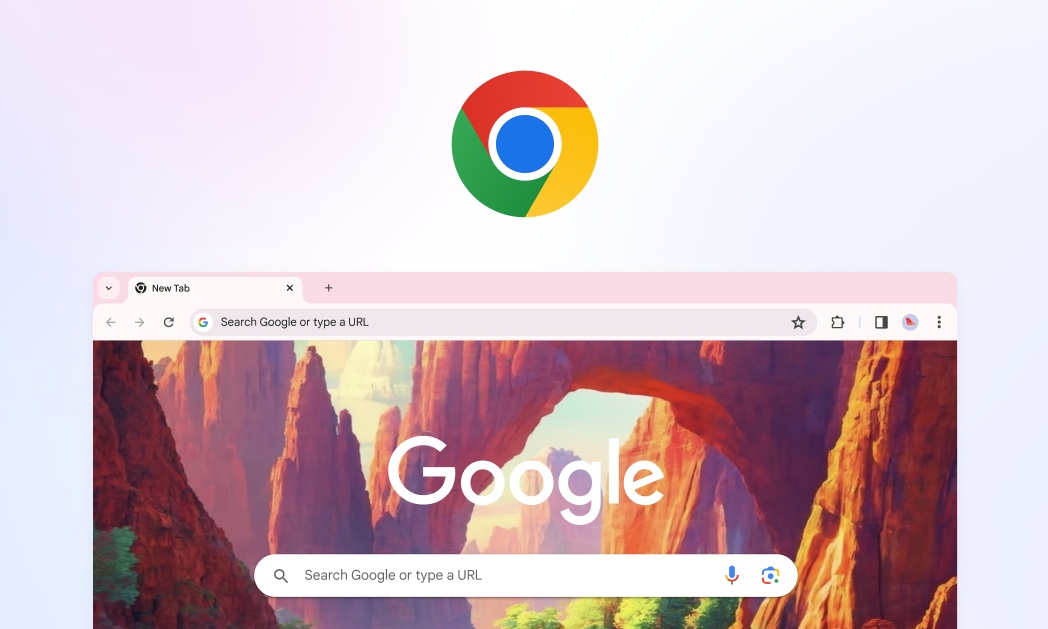
Image/ Google
However, this pervasive influence is precisely why Chrome has drawn the scrutiny of antitrust authorities.
The U.S. government believes that Chrome's dominant market position poses a threat to competition, enabling Google to control search traffic through the browser and thereby solidifying its advertising business, a model that makes it difficult for competitors to unseat its position. This time, the U.S. Department of Justice's stance is unprecedentedly firm:
They aim to dismember Chrome to restore a fair market competition environment.
But the real question is, how did Chrome achieve its current status? The clock rewinds to 2008, when the browser market was a different landscape—Microsoft's Internet Explorer (IE) still reigned supreme, while Mozilla Firefox was rapidly rising as a formidable rival.
At that juncture, Google unexpectedly entered the fray with a brand-new browser. This browser boasted speedier performance than IE, greater stability than Firefox, and a revolutionary design concept. For internet users of that era, Chrome's emergence was not merely a new option but more akin to a browser revolution.
And the genesis of this all began with a comic book.
A comic book: The inception of a browser revolution
On September 2, 2008, Google Chrome officially debuted, but its launch was unconventional—no grand press conference, no large-scale advertising, just a comic book.
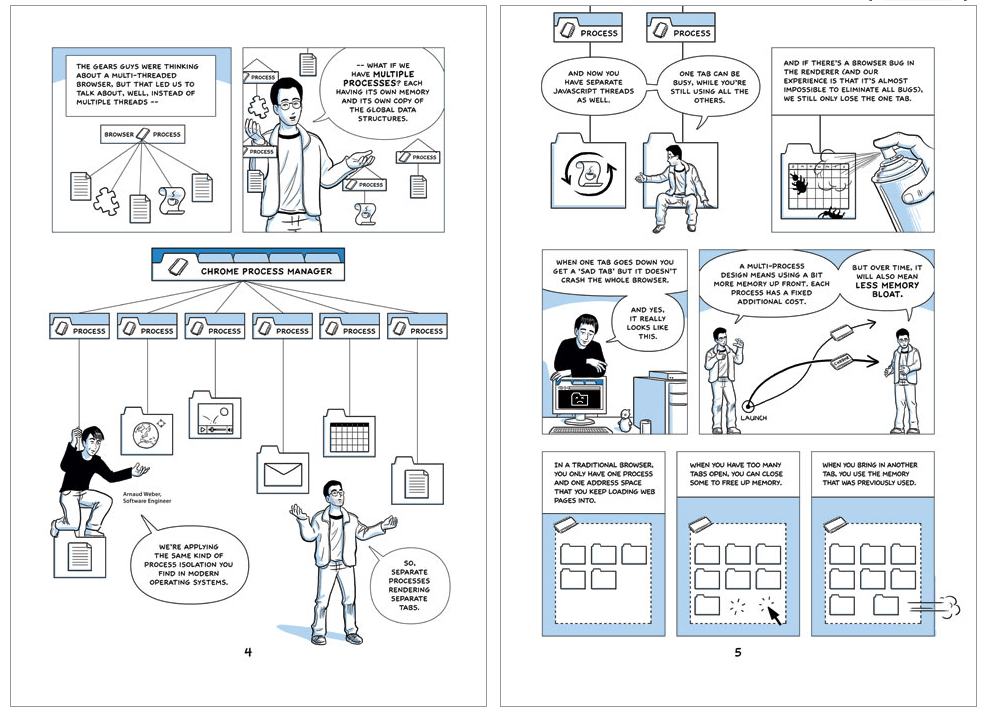
Image/ Google
This 38-page technical comic book, illustrated by legendary comic artist Scott McCloud, introduced an unprecedented browser to global users in a light-hearted and humorous manner:
It employs a multi-process architecture, with each tab functioning as an independent process, preventing a single webpage crash from freezing the entire browser; it integrates the V8 JavaScript engine, enabling web applications to run faster and smoother; it showcases a minimalist UI, eliminating the complex menu bar of traditional browsers, and focusing users' attention solely on web content.
First victory: Speed reigns supreme
Google's engineers understood that to break Microsoft IE and Mozilla Firefox's duopoly, Chrome had to offer tangible technological advantages. The multi-process architecture enhances stability, the V8 engine makes JavaScript run significantly faster than competitors, and the clean interface allows users to experience Chrome's difference from the outset. This "seamless out-of-the-box experience" became the initial step in its rapid user acquisition.
Just one year after its launch, Chrome's market share surpassed 5%. Meanwhile, through frequent updates (initially releasing a new version every 6 weeks) to continually optimize speed, the V8 engine's performance continually improved, making webpage loading times much faster than Firefox and IE.
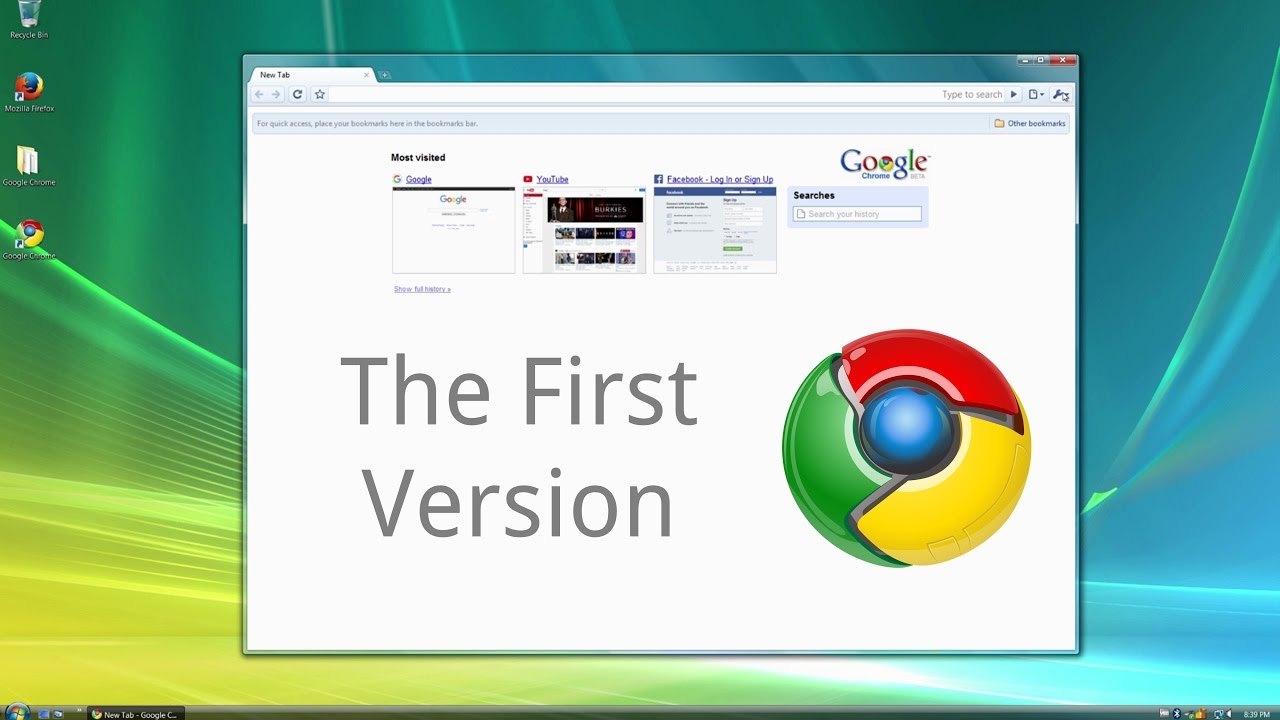
Image/ YouTube
By 2010, Chrome not only launched its own extension store, attracting developers, but also took a momentous step—it released Mac and Linux versions of Chrome, completely breaking the limitations of Windows browsers and expanding to all platforms.
Furthermore, Google unveiled Chrome OS based on the Chrome browser and launched the first Chromebook laptop. The logic behind this was clear: Chrome is not merely a browser but a complete web computing platform. Google aims to migrate computing from local operating systems to the cloud, with Chrome serving as the bridge to achieve this vision.
Mobile explosion: Chrome accelerates
In 2012, Chrome for Android and Chrome for iOS were successively released. While the iOS version was still bound by Apple's WebKit engine, the Android version of Chrome directly replaced the old Android browser, becoming the default option. This change rapidly expanded Chrome's user base and brought it immense mobile traffic.
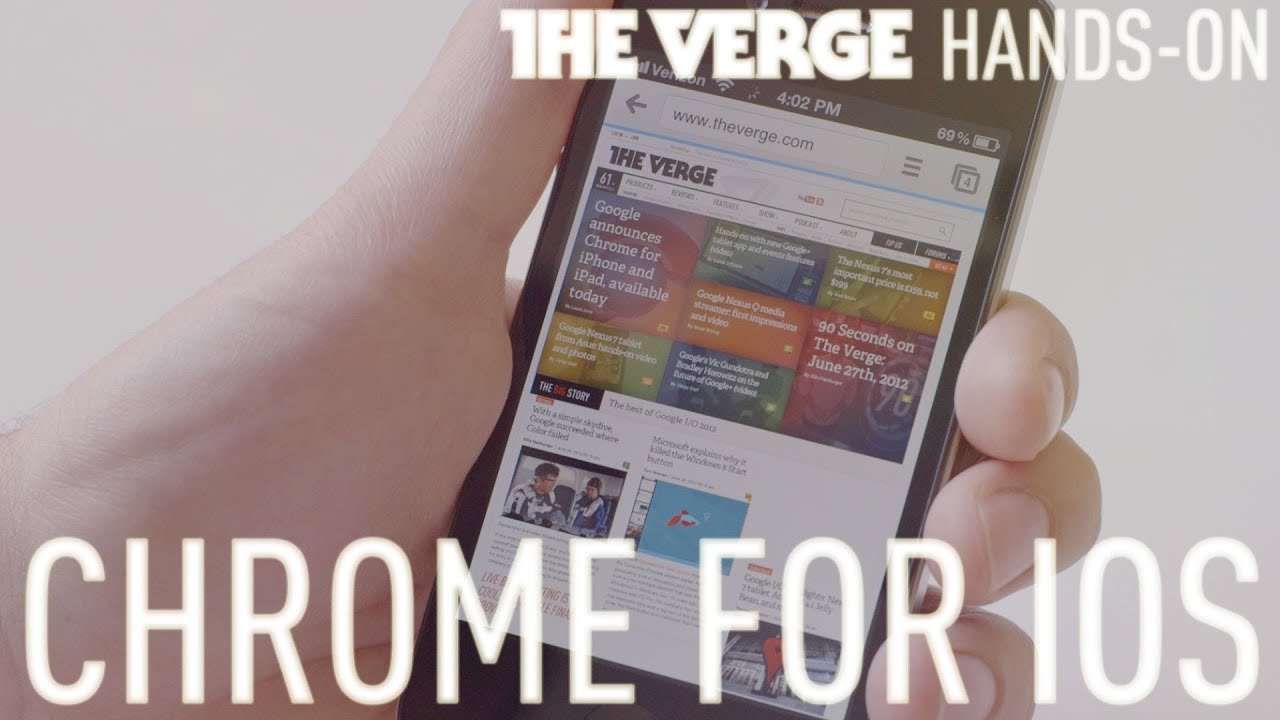
Image/ The Verge
Meanwhile, on the desktop front, Chrome began to fully challenge IE. In May 2012, Chrome surpassed IE in global market share for the first time, becoming the world's most popular browser. According to StatCounter statistics, Chrome's market share at that time was approximately 32.8%, while IE fell to 31.9%:
This was a historic moment, marking the official end of Microsoft's decade-long dominance in the browser market.
But Chrome's ambition extends far beyond surpassing IE; its next goal is to dominate the market completely.
Ascending to true royalty
By the end of 2013, Chrome's global market share had steadily surpassed 40%, outpacing IE and Firefox by a wide margin. Meanwhile, Google continued to enhance the browser's security, extension ecosystem, and synchronization experience, and began to exert greater influence on web standards. With the proliferation of HTML5, Chrome took the lead in phasing out Flash and steering the entire industry towards more modern web technologies.
That year, Google also made a pivotal decision—to fork Chrome from the WebKit codebase and launch its own Blink rendering engine to break free from Apple WebKit's dependence and accelerate the iteration of web technologies. From then on, Chrome completely controlled its technological direction and gradually formed a Chromium ecosystem centered around it.
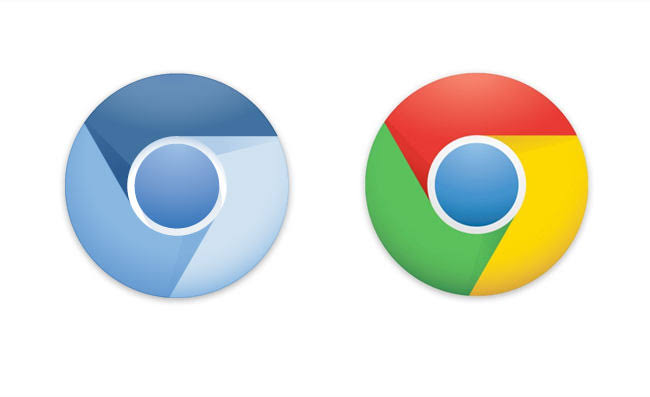
Image/ Google
From speed, stability, platform expansion to ecosystem construction, Google employed a series of precise strategies to mold Chrome into the user's favorite browser. In just five years, Chrome had transformed from a contender to a market leader. However, this was merely the commencement of Chrome's dominant era.
Chrome's golden age: A solo performance with no peers
In 2014, Chrome had reached the pinnacle of the browser market, defeating IE and surpassing Firefox to become the world's most popular browser. But true domination isn't merely about leading in market share; it's about making the entire industry revolve around oneself.
In the next five years, Chrome not only expanded its influence but also completely reshaped the web ecosystem, causing all rivals who dared to challenge it to falter one after another.
Battle for the extension ecosystem: Controlling developers
Before Chrome's ascent, Firefox's greatest strength was its robust extension ecosystem. In the era when IE was still cumbersome and slow, Firefox won the hearts of numerous tech-savvy users with its extensive plugin functionality, enabling them to freely customize their browsers.
But Chrome had a clearer vision—making extensions both powerful and secure.
Chrome's extension store went live in 2010, and although its initial size was far smaller than Firefox's, by 2014, it had swiftly surpassed Firefox to become the world's largest browser plugin platform. Google adopted a stricter permission management mechanism, reducing the risk of malicious extensions and making plugin development more accessible. This prompted developers to start building extensions for Chrome first, even abandoning support for Firefox.
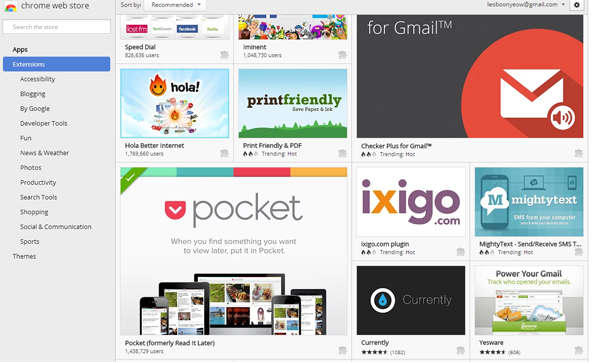
Image/ X
This was the first fatal blow to Firefox—the loss of developers caused its plugin ecosystem to gradually shrink, while Chrome utilized its extension ecosystem to lock in users.
Firefox Quantum: A desperate struggle, still vanquished
After IE nearly exited the stage, Firefox became the only contender with the strength to challenge Chrome. Mozilla realized that Firefox was losing users, and Chrome, with its faster speed, better compatibility, and stronger extension ecosystem, had become the default development standard.
In 2017, Mozilla launched Firefox Quantum, the biggest technical overhaul in Firefox's history, redesigning the rendering engine, introducing a multi-process architecture, and significantly optimizing speed and memory usage. Mozilla confidently declared that Quantum was as fast as Chrome and could save 30% of memory.
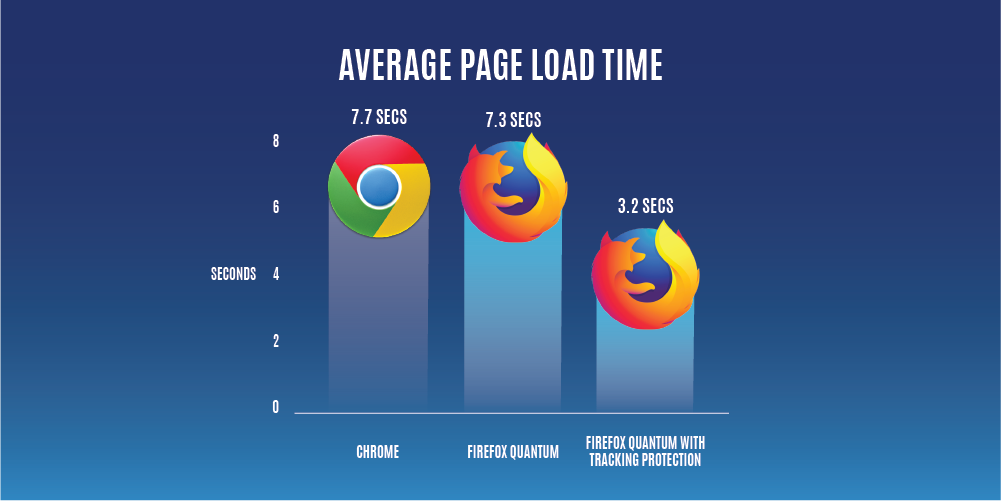
Firefox Quantum, Image/ Firefox
But the problem was that users no longer cared. Chrome had become a "habit," with Google account synchronization, cross-platform experience, and a seamless extension ecosystem, giving users no reason to switch. And for developers, although Quantum was fast, it was still not the mainstream market, and websites were still optimized for Chrome first.
In fact, after the launch of Quantum, Firefox's market share briefly surged but soon plummeted again. By 2018, Firefox's market share had fallen to less than 10%, while Chrome's share approached 65%.
Edge's challenge: Microsoft's last-ditch effort, eventual capitulation
Compared to Firefox, Microsoft Edge's tale is even more dramatic.
Microsoft knew that IE was outdated, so in 2015, it launched Edge, attempting to re-enter the browser war. Edge adopted a brand-new EdgeHTML engine, featured a modern UI, and was deeply integrated with Windows 10. Microsoft hoped that Edge could become a new choice for Windows users and directly challenge Chrome.
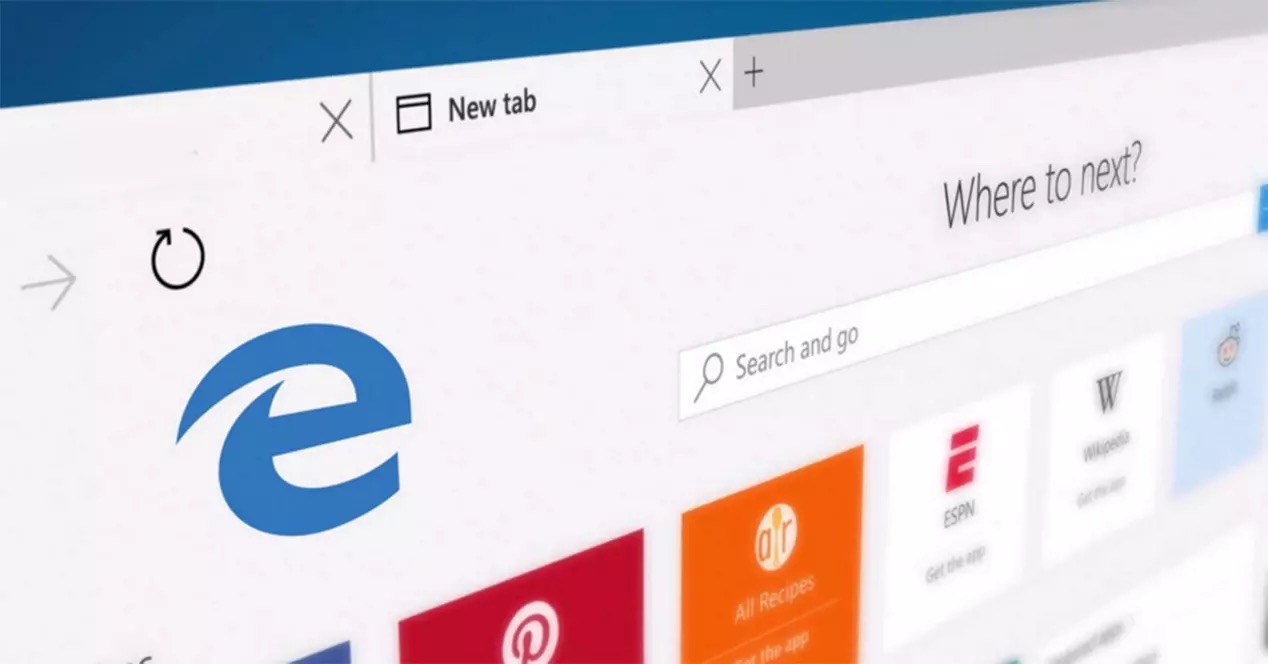
Old Edge Browser, Image/ Microsoft
The problem was that it was too late.
Developers were reluctant to optimize websites for Edge, and after trying Edge, users found its extension ecosystem lacking and compatibility mediocre, eventually returning to Chrome. Worse still, Microsoft's push to force Edge on Windows users only made some users even more averse, resorting to various means to install Chrome.
Ultimately, Microsoft realized that no matter how hard it tried, Edge could not unseat Chrome. So in 2018, Microsoft announced a shocking decision—Edge would abandon its own engine and switch to Chrome's Chromium core.
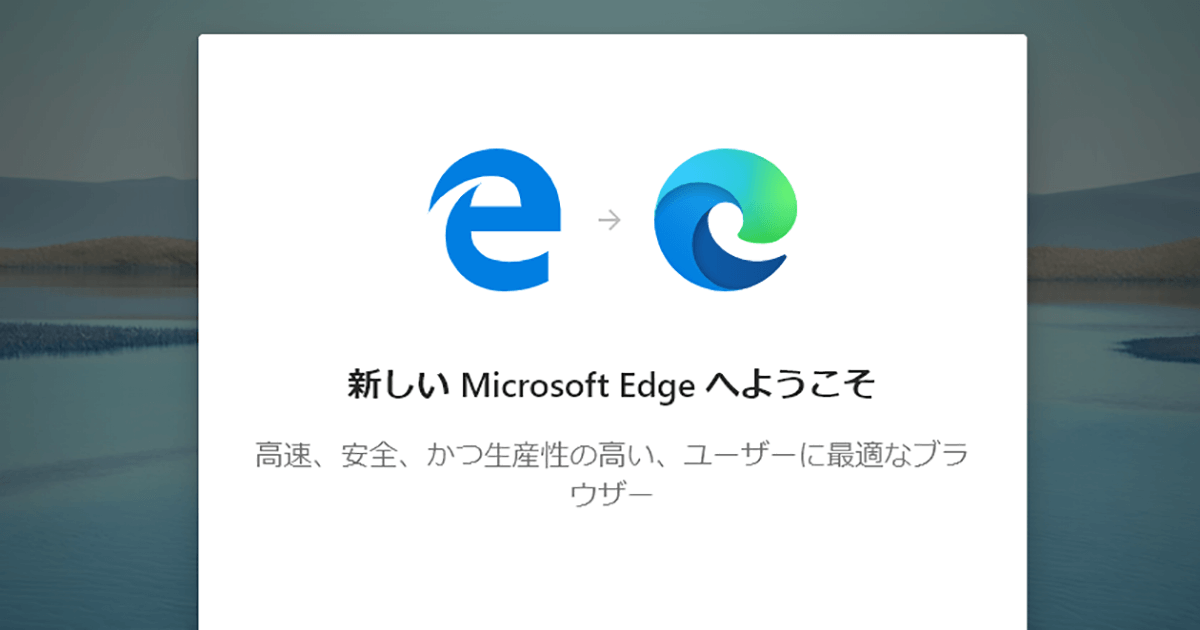
Edge Renewal, Image/ Microsoft
Microsoft's capitulation marks the end of an era. The once dominant browser had fully acknowledged Chrome's supremacy. When the new Edge was officially released in 2019, it had already become a variant of Chrome. Meanwhile, Chrome's market share had even surpassed 70%, making it the undeniable mainstream browser.
But the question arises, is it truly beneficial when most people use the same browser?
In the past, people loathed IE's monopoly because it stifled innovation and stagnated the browser industry. Now that Chrome has become the new dominant player, will it repeat IE's mistakes? Perhaps even Google itself doesn't have the answer.
However, it is certain that Chrome has transitioned from a contender to a ruler, from a web browser to a shaper of web standards, and it has completely transformed the internet.
In the era of AI, how long can Chrome remain on its throne?
Chrome was once the contender, but now it stands in the position of being challenged. In the past few years, it has not only faced counterattacks from market competitors but has also become the target of global regulators. The U.S. Department of Justice has demanded that Google spin off Chrome, accusing it of using the browser to consolidate its search and advertising monopoly, while the European Union is also constantly pressuring it to open up competition.
User complaints are also on the rise – Chrome is no longer the lightweight and swift browser it once was. It has become increasingly "heavy," with high resource consumption and ongoing privacy controversies. However, the real crisis may emanate from new challengers:
Microsoft Edge leverages the powerful ecosystem of Windows to fight back, focusing on AI, productivity tools, and enterprise-level features. It no longer directly competes with Chrome but builds its own moat at the system level. Safari (Webkit), on the other hand, firmly grasps the advantage of the Apple ecosystem, solidifying the loyalty of Mac and iPhone users with efficient energy management and default privacy protection strategies.
Even Firefox (Gecko), after nearly exiting the mainstream battlefield, has still found its own path to survival. It no longer attempts to compete with Chrome in terms of technology or ecosystem but focuses on privacy protection. For users weary of ad tracking and hoping to control their data, Firefox is one of the few options that can provide a truly different experience.
A deeper threat stems from the rise of AI.
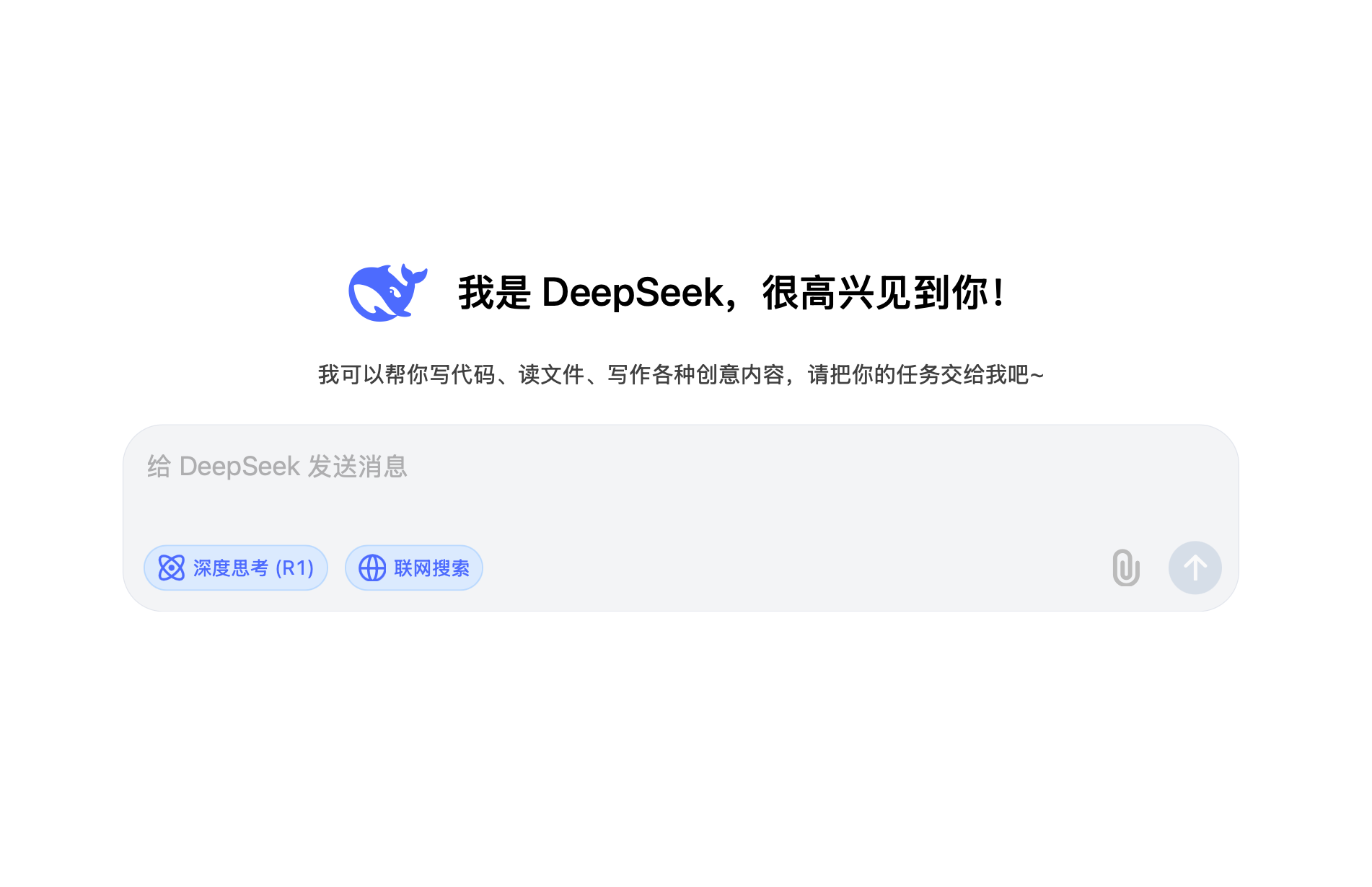
Image/ DeepSeek
For decades, browsers have been the gateway to the internet. Now, people are starting to ask questions directly to AI assistants instead of typing keywords into search boxes. Chrome's position is built on search engines, but if AI becomes a new way for people to access information, will browsers themselves still be relevant?
In March, Alibaba prominently introduced "New Quark," branding it as a "flagship AI application" aimed at competing with Tencent's Yuanbao, ByteDance's Douyin, and others for new AI entry points. The precursor to "New Quark" is the browser "Quark," renowned for its green, minimalist, and intelligent design, stemming from the UC Browser team acquired by Alibaba. After years of unassuming growth and amassing a significant user base, Quark has emerged as the new star in the AI era, while new internet users now barely recognize the concept of "browsers."
The revolution of browsers effectively concluded long ago. In the tech world, no ruler reigns forever. Internet Explorer (IE) once dominated but ultimately succumbed to the march of time. Chrome has revolutionized the web over the past decade, but the question remains: can it adapt to the transformations of the next decade?
No empire lasts indefinitely, and Chrome's next challenge has only just commenced.
Source: Lei Technology







